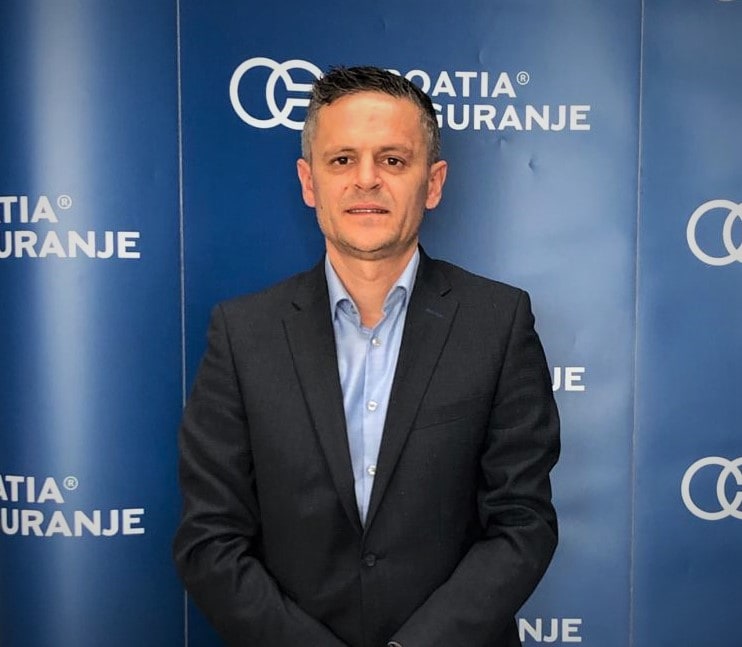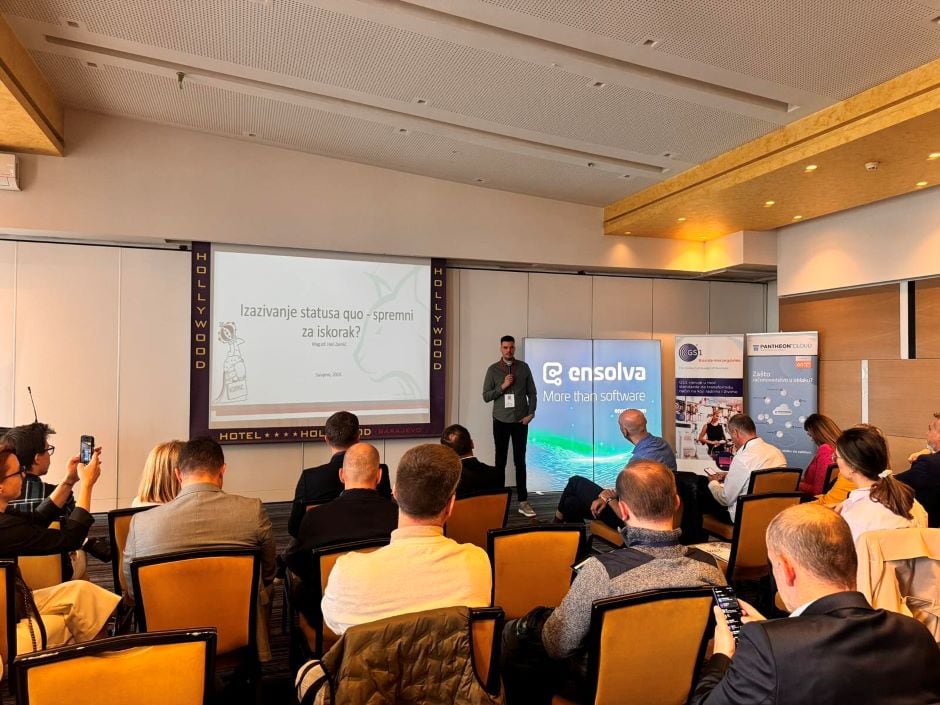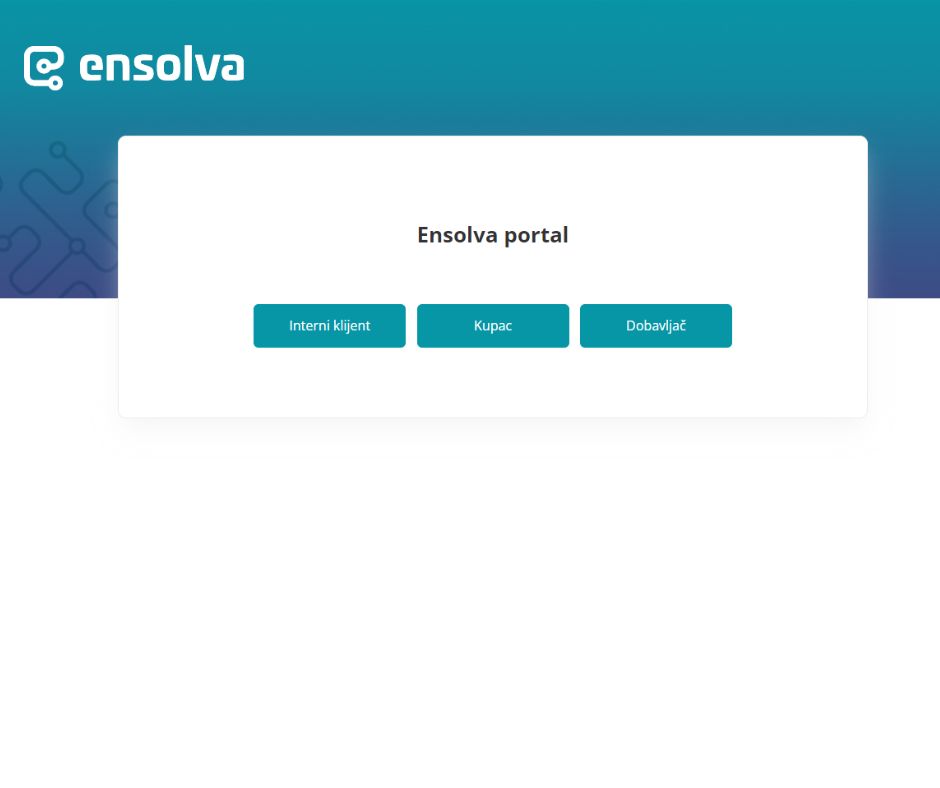Jakov Ivišić, Croatia Insurance
Procurement is no longer an operational function, now it also affects the success of the company![/fusion_title][fusion_text columns=”” column_min_width=”” column_spacing=”” rule_style=”default” rule_size=”” rule_color=”” hide_on_mobile=”small-visibility,medium-visibility,large-visibility” class=”” id=””]
“It was inevitable to move from the operational level of procurement to the strategic one. Procurement is increasingly involved in planning and control, benchmarking, analysis and management of the supplier network, said Jakov Ivišić, referring to procurement during the corona lockdown and the conditions after the earthquake. In an exclusive interview, he reveals how he negotiates with suppliers, how they deal with change and how technology has changed procurement.”
- All the suppliers we know (we know quite a number of them) did not fantasize about the career of the procurement professional. Moreover, procurement never occurred to them. Has a procurement career just happened to you too?
Procurement is one of those professions that no one thinks about. I’m sure no child has ever said they dream of being a supplier. I thought about my profession by looking to my role models, like most children. I wanted to be a football player or a coach, so my encounter with procurement was actually completely coincidental. My story in procurement started in a connected family business that was engaged in trade and catering. As part of that, I had various duties, and among other things, I performed procurement tasks and coordinated the delivery and supply of shops and cafes. It was then that I realized the complexity and importance of this work on which a large number of further processes depend. Thanks to that experience, I got a job in the procurement of Croatia insurance company.
- Compared to marketing, sales or finance department, procurement is still a neglected department and an unattractive profession. Given the dynamics, challenges and the possibility of advancement, it is amazing that procurement is only a temporary solution for many. Why is that so?
For a long time, procurement existed as an operational function. Deliveries and purchase orders proceeded without affecting the final outcome. In more recent business approaches, procurement has taken on an increasingly strategic role over the last two decades. But building a whole new image takes more time. As a department within the company, procurement still has to fight for its position. Purchasers mostly realized its value and importance only when they started dealing with it. In my experience, at that point people are either thrilled or develop an aversion, there is no middle ground. It often happens that the procurement is just a way station in career. Because of this, there is a large fluctuation of people going through that department. As a result, many individuals do not give their maximum, which is potentially one of the reasons why procurement has never been considered strategically important. Stress and frequent changes are another reason why many give up. Those who work in procurement are continuously exposed to large amounts of stress. The primary reason for this is a very large network of users and suppliers and the increasingly frequent changes in processes mainly based on regulatory compliance, but also information systems. That is why one of the main features of a good procurement professional is the ability to cope with everyday stress, as well as adaptation to frequent changes (which is especially pronounced in large companies).
- Business processes have undergone major changes in recent decades. What did procurement look like when you got hired, and what does it look like today?
At the time of my employment, procurement was concentrated only on the needs of the company. It was decentralized, each branch carried out procurement for itself up to the limits set by internal acts. Around 2013, we started consolidating procurement and initiated a centralization process. This was the first step towards creating savings and lower costs through economies of scale/volume. The next move was logical: procurement was centralized and consolidated at the level of the Adris group. Croatia Insurance was taken over from ADRIS group in 2014. After that, the impact of procurement on the company was significant: it was inevitable to move from the operational level of procurement to the strategic one.
Procurement has become increasingly involved in planning and control, benchmarking, analysis, and supplier network management. Nowadays procurement is increasingly involved in the whole process even in earlier steps – at the very initiation of the need by the customer. Based on the knowledge, it can immediately warn of potential risks that can be expected.
Let me remind you, procurement used to be an act of buying / ordering, and today it is a way of buying/ordering and includes all other aspects of business within the company. Procurement is more focused within the group, which includes Croatia insurance, Cromaris, Abilia and Maistra. In the transformation of procurement as a business process, we were helped by digital tools that enabled centralization and communication among all stakeholders in the process.
“Without technology in procurement, there is no competition!”
- Croatia insurance is the largest insurance company on the Croatian market. Given its reputation, it dictates trends. What does it look like internally in business processes?
Croatia insurance is a modern and technology-oriented company. Informatization has been recognized by the management as the most important item of development. Automation of routine business process segments has been initiated. Companies that resist such changes in the future will find it difficult to stay competitive in the market. Just six years ago, we didn’t have categorized procurement, so at times it seemed like everyone was doing everything. With the implementation of SAP, we made a categorization, introduced approximately 3000 materials, defined who is in charge of which procurement category, and with the integration of Ensolva, we divided the responsibilities by categories. In the beginning, I was not a 100% supporter of the informatization of the process. I was afraid that we would be expected to change the way we work in all segments overnight. This segment in our procurement is quite sensitive because on the other hand there are over a thousand suppliers, and a good relationship with them is crucial. Often this relationship is built outside the system and there is a key social skill that gives the whole process another dimension.
Fortunately, we successfully overcame all the challenges and the technology fitted in very well. We are a large company that has a lot of subsidiaries so technology has been on our side in connecting business segments. The key moment of successful automation of business processes was the will and awareness of employees to adapt to the new approach and way of working.
- You also study procurement from a theoretical-scientific approach. In your master thesis you dealt with the application of technology in the procurement process.
I have written two scientific papers on technology in procurement. The first was a final thesis at the Effectus Business School on “Business Information Procurement Systems”, and the second was a specialist thesis on “Project Management of Business Information Procurement System”. At that time, we used two information systems in the procurement of Croatia insurance: SAP and eSpin. These are two completely different systems, and in the paper I gave a detailed overview of the comparison: SAP is a complex system ideal for large corporations, and eSpin is more suitable for smaller companies. Ensolva was integrated later, as a specialized process management system in procurement. The biggest challenge was connecting/integrating one system with another. Thanks to the decision of my superiors, I was the one working on the maintenance of master data in SAP. Later, I became more and more involved in the process of integration of the two systems. The implementation of digital tools was a change in business, and for me personally an additional challenge to improve and upgrade knowledge about the processes that are accompanied by the information system. Croatia insurance successfully completed this part of the implementation of SAP, and later the integration of Ensolva. The usage of Ensolva and other digital tools is increasingly becoming a routine which ultimately results in increased productivity. In particular, Ensolva has been implemented in accordance with our regulations and internal acts and that is why it has “sat” very well in the business process. Given that procurement is often seen only as an operational segment, mastering the work in SAP and Ensolva, was a personal satisfaction for me and I am satisfied that on the one hand – in business terms – it protects my personal integrity.
“In combination with SAP, Ensolva has improved our procurement at its core: data that is available at all times. It placed the procurement process in the system, connected all its stakeholders and enabled us to communicate without parallel records, and control over the procurement process is excellent (sending notifications, collecting bids, analysis, easier access to audit, defined responsibilities, monitoring KPIs, transparency, analysis from the system, monitoring how much someone was in charge of certain activities). ”
- Has the implementation of a specialized procurement process management system yielded the expected results?
Croatia insurance always chooses the technology that can ensure a return on investment. We used to combine several different tools, mostly Excel. The big drawback was that the process was intermittent and switched from one tool to another at every step. As part of the implementation of SAP, we also introduced a procurement module, but it did not solve our problem because it works on the principle of data records. Ensolva, in combination with SAP, has improved our procurement at its core: data is available at every moment. The procurement process is housed in the system, all its stakeholders are connected and we are able to communicate without parallel record keeping. Control over the procurement process is excellent (sending notifications, collecting bids, analysis, easier access to audit, defined responsibilities, monitoring KPIs, transparency, analysis from the system, monitoring how much someone was in charge of certain activities). Ensolva covers the procurement process and data flow from their entry on request, publication of tenders to the collection of bids and contracts. Purchasing professionals use back office. We communicate with colleagues through the Procurement Request Portal, and with suppliers through the Supplier Portal. Logical sequence and logical connection are prerequisites for a quality system, and Ensolva makes it possible. It has successfully replaced old tools which has made us faster and more efficient, we have reduced manual labor and paperwork, established better cost control and made data easier to access, and centralized procurement at the group level.
“Suppliers like the most that the bidding process is transparent and that it gives them a sense of security and confidence that everyone has an equal opportunity. We have increased the number of suppliers in the database, and we are also recording an increase in foreign suppliers to whom the system has facilitated communication and availability to us as their customer. ”
- You mentioned that the relationship with suppliers is the most sensitive part of the procurement process. How did they embrace the digital business change?
Suppliers from larger companies that have an established sales department have accepted Ensolva without any problems. They have already encountered this type of business and digital tools are not foreign to them. The challenge is smaller companies that do business according to old school principles. Over time, it will become clear that without technology it is not possible to do business, but also that with its help companies can have more faith in procurement. Since we started working at Ensolva, the progress has been huge, and suppliers like the most that the bidding process is transparent and that it gives them a sense of security and confidence that everyone has an equal opportunity. The system disables access to offers before the time expires. Through e-mail, offers arrived at different times, so there was always a dose of doubt. Regardless of the transparency of procurement, it was difficult to influence the awareness of the supplier who feels “deprived” in a certain part of the procurement process, especially when collecting or analyzing bids. This suspicion has been removed precisely by the integration of Ensolva, which eliminates the possibility of non-compliance with the set parameters
Since we introduced Ensolva, we have increased the number of suppliers in the database, and are also recording an increase in foreign suppliers to whom the system has facilitated communication and availability to us as their customer. Cooperation with foreign suppliers is of strategic importance for the whole company because their interest also affects domestic suppliers in order to harmonize their conditions within the limits that are realistic.
- What are the advantages of companies that have specialized procurement tools over competitors that do not use them? Can the procurement sectors in today’s world work successfully without specialized tools?
Procurement efficiency affects the competitiveness of the entire company for the reason that procurement must be a good support to other business segments. In my part of procurement, I feel most useful because I support our core business and that is why the speed of accessing the requirements of the sales network is important to me. Our sales are related to ordering shelves and other sales forms, with one of the key factors being the speed of processing. We are now becoming that competition in the market can hardly be maintained without the right information system (tools).
In addition, the use of specialized tools (procurement systems) improves cost control and speeds up the process, i.e. it is easier to manage risks and identify the needs of applicants. It also affects transparency and makes suppliers aware of the objectivity of the situation and the fact that procurement cannot work outside the given framework.
“Today, procurement professionals are also consultants, they are expected to be involved in activities, if necessary before creating requirements, continuous market research, good knowledge of their company’s needs, monitoring trends and proposing better solutions.”
- Are Croatian companies applying technology in business processes? Can you compare it with European companies?
The fact is that there is some resistance to the implementation of the procurement system. Smaller societies, such as the majority in Croatia, find it harder to decide on this step. Their purchases are in a closer relationship with suppliers who are hesitant about technology, but over time things will change. In Europe, things are much different, there are more large companies that can afford such tools, and among them we can certainly include Croatia insurance, or ADRIS group, which seek to follow trends and thus keep abreast of technological advances in the procurement segment, as well as in other business segments.
- The main goal of procurement for many is to reduce costs/savings only. Is that really so?
The goal of procurement is always the same: to provide the company with what it needs, on time and at the best price. This definitely implies not only the act of procurement, but also the strategic role that procurement is increasingly playing, making decisions on the assumptions of creating added value and reducing total operating costs. Today, procurement professionals are also consultants. Upon receipt of the request, they should inform the applicant of the potential risks and suggest a better solution. They are expected to be involved in activities, if necessary even before the creation of requirements, continuous market research, good knowledge of the needs of their company, monitoring trends and proposing better solutions.
“The building on Josip Jelačić Square, which is one of the symbols of Croatia insurance company, was severely damaged during the earthquake. The entire building was to be evicted in the next 10 days. Procurement played a key role in this activities.”
- In recent months, an epidemic of the COVID-19 virus has changed businesses and lives. How did you cope with those unexpected moments?
The epidemic reset us all in some way and showed that we are organized as a company. Our IT successfully prepared all the necessary infrastructure for all employees to work from home within three days (over the weekend). Everything was done superbly and without a notch, and every business segment went smoothly. Procurement worked continuously, as did all other organizational units. The main reason for this is that Croatia insurance computerized its business processes and thus enabled remote work. In such circumstances Ensolva benefited us all, each user had access to the Request Portal and everyone was able to submit requests. In my estimation, technology has been used more than ever before.
- In addition to the initial shock due to the corona and lock down, you also had an earthquake in Zagreb. As the biggest procurement challenge, many singled out the relationship with suppliers and the supply chain.
The building on Josip Jelačić Square, which is one of the symbols of Croatia Insurance, was severely damaged in the earthquake. The entire building was to be evicted within the next 10 days. Procurement played a key role in this. In a critical situation, we found and secured, in record time and almost impossible conditions, transportation, storage and storage. There was a crucial partnership with suppliers. Most of the suppliers came out to meet us thanks to good relations, and this situation brought us all even closer. It is impossible to mold everything and put it into a system, but such organization helps build better relationships. The team spirit was felt – after the earthquake we were all at each other’s service and it united us in one way.
- In your estimation, what changes await procurement in the near future?
Procurement is increasingly rising to a strategic level and change is inevitable to follow. An item from an operational procurement gains in value only if it is procured strategically. Procurement will no longer be in charge of products and services, but solutions and will be further involved in the processes that precede and follow it. Fitting in price, distribution and use will continue to be the biggest challenge, with the planning process being key: preparation, research, new markets, based on purchasing categories and consolidation of categories. The focus will increasingly be on the narrower and strategic specialization of procurement professionals. Partnering with suppliers will increasingly need to represent the added value of products for the company. Strategic procurement will pave the way for segmentation and expansion of cooperation with the aim of obtaining even greater added value of products and reducing total costs, which is extremely important for Croatia insurance or Adris Group.



